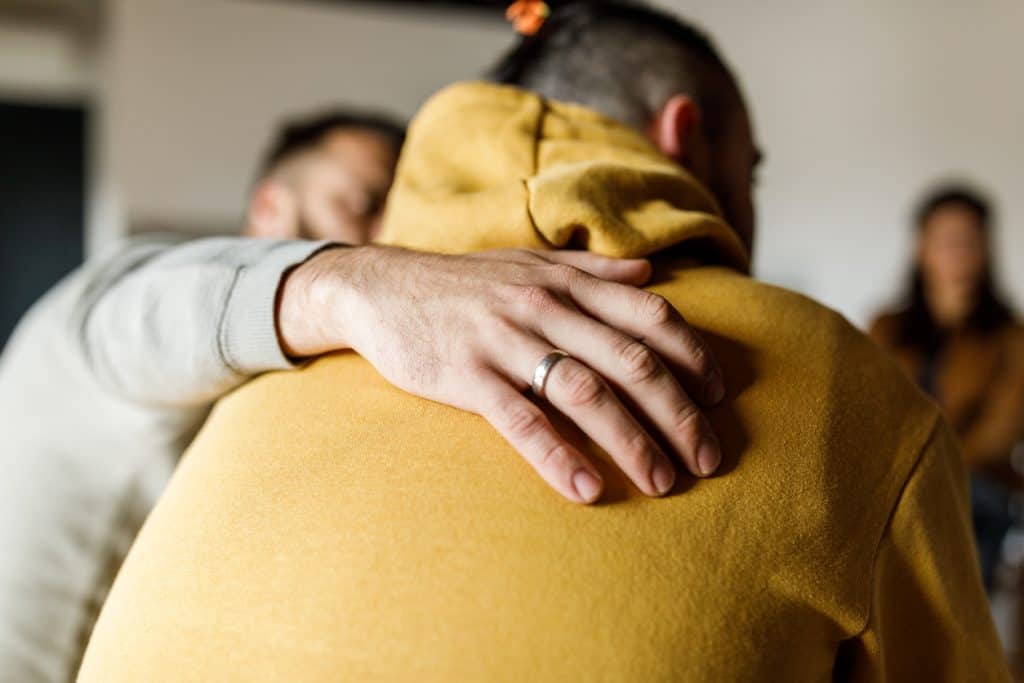Amy’s first exposure to internet pornography was accidental. At just 12 years old, she was at first shocked and disgusted but also felt a thrill—a strange rush accompanied by a sense of shame, which told her she should keep the experience a secret. As the days went by, she found the images coming back into her mind and piquing her curiosity. Why did those images spark such a strange mix of emotions and sensations? What else is out there in cyberspace? Eventually, she relented to her secret desire to know more.
Before long, Amy developed a regular habit that lasted through her teen years and into young adulthood. She found that she increasingly relied on it to escape from painful feelings or problems. Things progressed to the point where Amy depended on her porn ritual to simply cope with life. Each time she watched porn, she felt a momentary relief from the stresses of her life, followed by a tsunami of shame, guilt, self-hatred, isolation, and helplessness to stop.
In her mid-20s, she couldn’t take any more. After yet another fall, she finally broke down and confessed her struggle to a friend from church. With much support and encouragement, Amy was able to take some positive steps. She spoke with her pastor. She joined a support group. She installed Covenant Eyes on all of her internet-capable devices and asked her friend to be her “ally.” They frequently talked about Amy’s progress and struggles. Gradually, these efforts began to pay off.
For the first time in years, Amy had hope that she could overcome her porn habit. With all the new support she had in her life, Amy grew stronger and more able to reject the temptation to go back. Her falls became less frequent. She began to see that lasting freedom was becoming a real possibility, but something wasn’t right. Despite all her efforts and progress, Amy noticed herself feeling worse. At times, she felt moody and irritable, and at other times, she felt dull and listless. Worse yet was the constant anxiety. Amy was baffled and discouraged. She was doing the right thing. She was quitting porn and getting her life together. What was going on? Why did she feel miserable?
Experiencing Withdrawal From Porn
I believe there are three main reasons for Amy’s experience of feeling worse while quitting porn. The first is withdrawal. Without her realizing what was going on, Amy’s brain had adapted to her porn habit over the years. Pornography is so intensely stimulating for the brain that habitual indulgence can trigger neurological changes. Indeed, changes had taken place in Amy’s dopamine reward system and other areas of the brain involved in mood and motivation. By getting rid of her usual “drug of choice,” Amy’s brain was left confused and anxiously awaiting the next big spike of dopamine and endorphins. Now, without those surges, nothing felt right.
Withdrawal is Temporary
To overcome withdrawal, Amy first needs to understand that this is a temporary phase. If she perseveres, her brain will gradually heal and adapt to life without her porn habit. She also needs to support these neurological changes through good sleep, nutrition, exercise, and contemplative prayer or meditation. Another important aspect of her recovery in this phase is to rediscover the many sources of healthy pleasure and enjoyment in life while avoiding the dopamine spike that comes from addictive behavior. While less intensely pleasurable in the short-term, Amy will benefit from healthy leisure activities such as spending time in nature, listening to or making music, artistic endeavors, developing new hobbies, and most importantly, relentlessly investing in healthy relationships.
Developing Coping Strategies
Turning to relationships instead of things is indeed a vital step not only in dealing with withdrawal, but also in addressing the second reason people sometimes initially feel worse when they quit porn: reliance on porn and sex as coping strategies. I am speaking here of the various ways we deal with all the various painful emotions that arise as we navigate life. For Amy, porn became the chief way she dealt with stress and negative emotions such as fear, anger, loneliness, and sadness. Without her preferred (maladaptive) coping strategy, Amy is left struggling with and feeling distressing emotions that she used to numb with porn.
Handling Negative Emotions
Amy’s recovery efforts hinge on learning new ways to handle negative emotions. As already suggested, central to this effort is turning to relationships instead of things. Human beings are an inherently social species. We come into the world wired to go to others for a sense of safety and security. When we are confident that others are going to be there for us during times of trouble, we thrive emotionally and physically. For many people like Amy, porn and masturbation can become the “safe haven” they turn to for reassurance and comfort when distressed.
Lasting freedom requires finding healthy alternatives, especially reinvesting in healthy relationships in which we can share our burdens with supportive, loving people (e.g., family, friends, accountability partners, fellow support group participants, God). By repeatedly turning to relationships, vulnerably sharing her burdens, and opening herself to the care and support of others, Amy will re-learn to find strength and solace from real relationships rather than the counterfeit alternative offered by porn.
Noticing and Labeling Emotions
Of course, there are additional coping strategies that are also very important in recovery. Learning to notice one’s emotions and inwardly label them is extremely important. When we can name what we are experiencing and why (e.g., “I am feeling hurt that I didn’t get invited out to lunch with my coworkers”), we actually tend to feel less distress. Having a name for what is going on inside is very powerful. Like Adam naming the animals in the book of Genesis, we begin to exercise dominion over our emotions when we can notice and name them according to their kind.
Noticing and naming our feelings also enables us to engage in other healthy coping strategies. We can share our feelings with others (as discussed above). We can journal about them. We can bring them to prayer or engage in other meditative practices. We can also engage in self-compassion or positive self-talk. It is helpful to think of our emotions as if they are our children. Like a good parent, it is our job to listen to them compassionately and guide them to healthy solutions when they are troubled. Quitting porn gives people like Amy the opportunity to develop these vital skills. Putting them into use will help close the door to porn or other addictive behavior for good.
Addressing Trauma and Childhood Wounds
The final issue that could be fueling Amy’s increased distress now that she is quitting porn is unresolved trauma or other childhood wounds that are beginning to surface. Highly stressful childhood experiences that left us feeling chronically insecure can open the door to addictive behavior. In Amy’s case, her parents had a highly conflicted marriage. Their frequent fights created ongoing stress for her as a child, sometimes punctuated by periods of intense fear. Eventually, her parents divorced. The amount of conflict in her life decreased, but so did the amount of time she got to spend with her father. In addition, she became concerned about her mother who was working so hard to try to manage a household and raise Amy and her siblings. Amy felt like she needed to have everything under control and do as much as possible for her mother. It was in this context that her porn habit developed.
The Role of Subconscious
Amy’s porn habit helped keep all of the pain from these experiences stuffed away out of her conscious mind. Now that she was quitting porn, it began to bubble up into awareness. Amy—and anyone in her shoes—should not be dismayed or discouraged by this. This actually means that she is ready for a deeper form of healing. Without first dealing with her porn issue, Amy might never have gotten to the point where she is truly ready to address her deepest wounds and thereby gain the emotional stability and wholeness that have long eluded her. Now that she is ready, it is time for her to find the right support to help resolve those wounds. In Amy’s case, she asked her pastor for a referral and started seeing a trauma and addictions-informed therapist.
Healing is Possible
As we can see, there are several reasons individuals like Amy may struggle emotionally in the initial stages of quitting porn. For some, overcoming these difficulties is simply a matter of persevering and diligently implementing the strategies described above. For others, therapy and perhaps medication can provide the extra help that is needed to get over the hump and achieve long-term freedom. Either way, it is important to remember that even though healing is not a straight, linear process, it is possible. Though some may feel temporarily worse before they feel better, anyone who has persevered in recovery can tell you that the “better” is totally worth it.








A very nice encouragement, thank you!